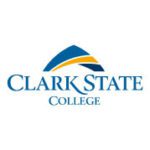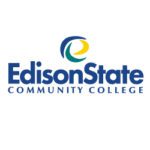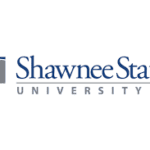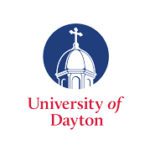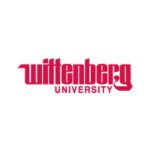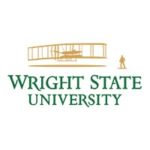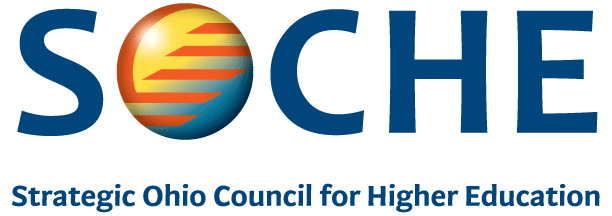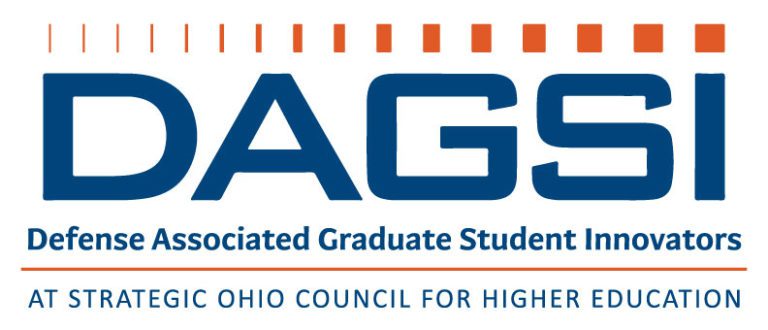
Afrl/dagsi student-faculty research fellowship program and soche intern opportunities
No funds should be obligated on the SOCHE Cooperative Agreement by AFRL researchers without an approved budget. Once DAGSI has confirmed that a project is eligible for additional funding and an appropriate end date has been established, the AFRL researcher can begin the obligation process with the appropriate funding amount. Funding received without this process completed will cause a delay in having funds available to project teams or could result in the team not having enough time to expend all funds obligated.
AFRL/DAGSI STUDENT-FACULTY RESEARCH FELLOWSHIP PROGRAM
The AFRL/DAGSI Student-Faculty Research Fellowship Program supports science and engineering graduate students and faculty who conduct research in areas targeted by the Air Force Research Laboratory at Wright Patterson Air Force Base. This agreement is flexible, allowing for AFRL to either cost-share with ODHE and/or a university or to fund a project in its entirety. Unlike the ODHE funded projects which are competitive and only awarded once a year, AFRL fully funded projects can happen at any time of the year. These can be newly developed projects, or the Technology Directorates have the ability to pick up projects that did not receive ODHE funding during a specific competitive cycle. Projects fully funded by AFRL may also support universities outside of Ohio.
The key program objectives are to:
- Strengthen AFRL research ties to Ohio’s academic science and engineering community
- Stimulate effective collaboration between Ohio universities and the AFRL
- Leverage Ohio research funding with AFRL, university, and industry funding and other resources
- Develop research talent to meet AFRL and Ohio high-tech workforce needs
- Increased utilization of AFRL facilities
- Increase involvement by Ohio students and faculty in Aerospace research at Wright-Patterson Air Force Base
- Build stronger ties between Ohio’s research institutions and the Air Force
All projects involve applied research in aerospace technologies and originate from research topics provided by the four AFRL Directorates headquartered at Wright-Patterson AFB, Ohio: Airman Systems (RH); Aerospace Systems (RQ); Materials & Manufacturing (RX); and Sensors (RY).
Program Description
Research topics identified by the Technical Directorates at AFRL/WPAFB are posted on the DAGSI website by October 1 each year. Each topic has a short description along with a technical point of contact within the directorate.
A two-person team composed of a graduate student and a faculty member submits a proposal in one of the target research topic areas. Selection of proposals for funding is made solely by AFRL. Research Fellows collaborate with AFRL scientists and engineers, using AFRL facilities in addition to their university facilities, to conduct their research. The AFRL is committed to providing significant on-site involvement and support to the academic participants. Each team will develop and customize a plan with their AFRL sponsor for conducting the research on-base, off-base, or a combination of the two depending on the facilities available at the student’s university. Each faculty member is expected to be involved in the research, spending time advising the student partner and interacting directly with the AFRL project sponsor. The expectation is that the research will be the basis for most if not all students’ MS or PhD dissertation.
Applicants must submit a budget proposal for use of the AFRL and cost-share funds, subject to the following constraints:
- Allowed expense categories are student and faculty stipend, student tuition, and miscellaneous expense funds for travel, publications, etc. Consideration must be made for the student’s summer travel/housing expenses while conducting research at AFRL.
- AFRL fully funded projects do not require a cost share from the university, although this is highly encouraged.
- Maximum university overhead rate is 26% applied to all categories but tuition, which is exempt.
- The DAGSI Administration Fee is 8% of the total AFRL obligated funds.
- Student stipends are recommended to be at least $24,500 (excluding benefits) for students enrolled in a PhD program at the start of the Fellowship and at least $19,000 (excluding benefits) for students who hold a BS degree and are pursuing an MS degree, either terminal or on the way to a PhD.
- Student tuition for one academic year must be covered in full. This should be tailored to the student’s specific needs.
- Applicants MUST submit a budget (including cost share, if applicable) matching the exact amount of funds being obligated by AFRL.
Note: students and faculty receiving support from the AFRL/DAGSI program do not incur any formal obligation to the U.S. Government. Program objectives will be best served if the student actively pursues research, teaching, employment in air and space industries or other Air Force-related fields after graduating.
Program Rules, Requirements, and Eligibility
Student and faculty applicants are responsible for familiarizing themselves with the program rules, requirements, and eligibility.
- It is highly encouraged that a students and faculty team communicate with a topic’s AFRL sponsor PRIOR to proposal development.
- A research plan should be included up-front as a part of the application, and the AFRL project sponsor must agree to the plan. AFRL and the university team may determine that much of the work is best accomplished with the extensive use of university resources. DAGSI should be made aware that the student may not be using AFRL labs as his/her primary research base.
- Each faculty member should spend time over the award year advising the student and, particularly if drawing a stipend from the award, doing project-related research. The research plan should state clearly how the student and faculty anticipate making use of AFRL facilities.
- A student may hold only one award at a time.
- Each proposal should address a single research topic unless the topic combination has been approved by AFRL.
- Collaboration among universities is strongly encouraged. For example, two teams from different schools may collaborate on a topic, each submitting a separate application with a distinct research proposal but requesting that the applications be considered together.
- All student applicants must be currently enrolled or admitted as full-time graduate students in engineering or a similar scientific or technical field. If for some reason a student’s expected admittance remains pending as of the application deadline, admission must be confirmed prior to the project start or the application will be disqualified. Students admitted to but not yet enrolled in a graduate program must have accepted the school’s offer of enrollment.
- Students participating in a 4+1 Master’s program are eligible to apply for DAGSI funding, however, they must be considered a full-time MS student at the time the project starts. Meaning they must be classified by their Home Institution as a MS student and taking MS courses.
- Any student holding employment outside of this fellowship is responsible for verification that he or she does not violate any university or employer restrictions on employment while receiving a stipend for research (e.g., some universities limit the number of outside employment hours for full-time students receiving fellowship stipends; some employers prohibit receiving a stipend if the employee is being paid a salary). Student Fellows must be considered full-time students and must not be employed full-time. Any violation of the policy will result in termination of the fellowship unless the student makes a change that ensures compliance with all university, DAGSI, and employer rules.
- Due to Government restrictions, student applicants funded by DAGSI must be US citizens. Faculty members who plan to do research at AFRL must be US citizens. Faculty green card holders are discouraged from applying. At a minimum, any interested faculty member who is not a US citizen must discuss plans and status with AFRL well in advance of applying and must get AFRL approval prior to submission of a proposal. That approval must be documented in the application or the application will be deemed ineligible.
- Faculty applicants must be full-time, tenured or tenure track. Adjunct faculty and consultants are ineligible. Senior research faculty may apply provided they work closely with and advise graduate students. No faculty members other than the applicant may receive a stipend or miscellaneous expense monies from an AFRL/DAGSI award without prior approval by BOTH AFRL and DAGSI.
- If a student receiving an award withdraws for any reason, a student substitution may be made per the discretion of the AFRL sponsor. The replacement student must be comparable in academic standing to the original applicant. Replacement students must submit a complete application form to DAGSI along with a plan to continue the research already underway and must be approved by the AFRL project sponsor. DAGSI and AFRL have final approval.
- A completed application package and DAGSI approved budget must be received prior to AFRL obligation of funds. The DAGSI Program Manager will notify the AFRL project sponsor when the package is complete.
- Once DAGSI receives the matching obligation, a contract will then be completed between DAGSI and the research team’s home university.
- The start and end dates of a project must fit within the dates of the current AFRL/SOCHE Cooperative Agreement.
Application Guidelines
Before applying, all interested students and faculty must familiarize themselves with the Program Rules, Requirements, and Eligibility from the section above. Failure to adhere to program rules, requirements, or eligibility criteria will result in disqualification of the application or cancellation of the project. All new applicants must follow the process outlined immediately below.
An application for the AFRL/DAGSI Student-Faculty Research Fellowship Program is comprised of the following documents (See FORMS):
- Application Cover Page
- Student application form
- Transcript(s) – unofficial transcripts are acceptable and must be included within the application package
- At least two letters of recommendation for the student
- Faculty application form
- Research proposal
- Budget proposal. A Budget Justification is not required by highly recommended for the Miscellaneous budget line at minimum.
- Signature form
Applications may be submitted by email (lauren.mitchell@soche.org), by mail (2750-B Indian Ripple Road #225, Beavercreek, Ohio 45440), or by hand.
The application forms should be completed electronically, printed, and submitted along with the research proposal, the proposed budget, the signature form, and any other supporting materials in ONE PDF document. Do NOT use PDF portfolios or zip files.
The following documents must be provided along with the application forms.
- Transcript(s): Unofficial or Official transcript(s) listing all university coursework (undergraduate and graduate) and GPA is/are required. They must be included within the application package.
- Letters of Recommendation: At least two one-page, signed letters must be submitted for each student. One recommendation must be written by the faculty research partner. For PhD students, this letter must include a statement addressing the level of assistance provided to the student in developing the research proposal. The other recommendation should be written by someone familiar with the student’s academic and research record and capability. These letters must be included within the application package.
- Research Proposal: Each proposal must address a single research topic.* The document should describe the research proposed over a one-year timeframe. If the team anticipates a multiyear effort, focus the detail on the year-one effort but add an outline of the work anticipated beyond the first year, including a timeline. For PhD-level projects, the student should take primary responsibility for preparing the proposal, with support, guidance, and input as necessary from the faculty partner. (If one could quantify the level of effort, the guideline is at least 80% student effort and at most 20% faculty effort). For MS-level projects, the proposal may be developed and written jointly by the faculty member and the student. Students and faculty should contact the AFRL topic sponsor as they prepare the proposal. Such collaboration should benefit the student/faculty team by enabling them to prepare a highly competitive proposal.
- Signature Form: All required signatures must be included.
*Any single proposal addressing two overlapping research topics must be approved by the AFRL sponsor of each topic. The sponsors must sign a statement agreeing to the proposed combination of research topics.
Proposal Format
- No more than 6 text pages (one-inch margins all around; 12 point font; single-spaced)
- No more than 5 additional pages for graphics, tables, charts, references/literature citations, and/or appendices
- The proposal must include: statement of the problem; background and relevance to previous work; general methodology and procedure to be followed; expected results and their significance and application; outline of anticipated efforts beyond year 1 if seeking a multi-year award; potential impact on Air Force and/or Ohio economy; and literature citations where appropriate. Any anticipated special requirements necessary to conduct the research (e.g. special equipment, computer resources, etc.) should be indicated.
Proposed Budget: An AFRL funded project does not require a university cost share, however this is strongly encouraged. An internally-calculating budget form is provided in the Forms section and must be used. The dollar amount being obligated by AFRL must match exactly the amount on the AFRL column of the budget. The 8% DAGSI Admin fee is required. This fee is 8% of the total obligated amount. Example: If the amount being obligated by AFRL is $100,000, then $8,000 is the DAGSI Admin Fee and $92,000 is the funding available for the rest of the project budget, including the 26% university overhead fee and tuition. NOTE: Student and faculty travel expenses for research time at AFRL needs to be taken into consideration when developing the Miscellaneous section of the budget.
PLEASE NOTE FOR BUDGETING PURPOSES, PER COOPERATIVE AGREEMENT FA8650-19-2-9300 AMENDED AUGUST 2020:
4.06 COST PRINCIPLES (August 2020)
The cost principles applicable to this agreement are contained in 2 CFR 200, Subpart E, Cost Principles. 2 CFR describes the cost principles for determining allowability of costs applicable to lower tier, cost type contracts or awards under this agreement shall be determined by type of entity receiving the lower tier contract or award. All awards are subject to a 26% cap on their F&A rates. F&A is not to be applied to Tuition Remission.
Forms
Adobe Acrobat is required to download pdf forms
- Application Package Cover Page
- Signature Form – AFRL Funded Project
- Student Application
- Faculty Application
- Budget Proposal Form
- New Fellowship Acceptance and Agreement Form
- New Project Information Form
- Project Data Form – Due with July 15 Quarterly Report
- Exit Survey
Renewal of Existing Awards
Projects solely funded by AFRL are renewable based on funding availability of the sponsoring TD and do not follow the renewal requirements required by the ODHE guidelines. Teams should work directly with their AFRL sponsor for options available. Any questions regarding this process should be directed to Lauren Mitchell (lauren.mitchell@soche.org).
Reporting Requirements
Requirements:
- Written quarterly reports – Quarterly reports are due every quarter from project start until the final invoice is received. Technical reports are used as information back-up to any university invoices received. No invoices will be paid without a technical report for that quarter. Reports are due through any No Cost Extensions given. Confirm your project end date on your university contract.
- Yearly virtual presentation session
Report Due Dates:
- October 15
- January 15
- April 15
- July 15 – This report must include a completed copy of the Project Data Form
Submission:
A completed report should be submitted to DAGSI Program Manager, Lauren Mitchell (lauren.mitchell@soche.org) AND the AFRL sponsor of the project.
Report Format:
The written report has two parts, the first completed by the student and the second by the faculty member. Here is the requested format:
Section I: Progress Summary (Student)
In no more than three pages of text (not including title page), summarize your progress to date as follows:
- Title page
- Abstract
- Introduction
- Procedure
- Results and Discussion
- Conclusions
Acknowledgments, References, Appendices may be added as necessary/desired.
Section II: Progress Summary (Faculty)
In no more than three pages of text, describe your involvement and work on the project, summarize the team’s progress, and provide your assessment of the current and future success of the research project. Diagrams, figures, and tables may be added as necessary/desired.
Virtual Presentation:
DAGSI will host a virtual presentation session in December of each year for projects which have completed at least 10 months of research. This is an opportunity to present your completed research to peers, other universities and representatives from AFRL, private industry, and state officials. Information will be sent to the teams who will be asked to participate in June.
Publishing Project Results
If you are unsure which funding vehicle your contract is under, contact Lauren Mitchell lauren.mitchell@soche.org for confirmation.
Publication:
Publication of results of the research project in appropriate professional journals is encouraged as an important method of recording and reporting scientific information. One copy of each paper planned for publication will be submitted to the Government Technical Representative / Program Manager (identified in Administrative Responsibilities Article) simultaneously with its submission for publication. Following publication, copies of published papers shall be submitted to the Program Manager/Technical Representative.
Disclaimer and Acknowledgement:
You agree that when releasing information relating to this award, the release shall include a statement to the effect that the project or effort undertaken was or is sponsored by the Department of the Air Force, AFRL. You are responsible for assuring that every publication of material (including World Wide Web pages) based on or developed under this award, except scientific articles or papers appearing in professional journals, contains the following disclaimer:
“The opinions, findings, views, conclusions or recommendations contained herein are those of the authors and should not be interpreted as necessarily representing the official policies or endorsements, either expressed or implied, of the DAF, AFRL or the U.S. Government.”
You are responsible for including an acknowledgment of the awarding agency’s support, which shall appear in the publication of any material, whether copyrighted or not. The acknowledgement must read:
“This material is based on research sponsored by AFRL under agreement number FA8650-24-2-9350. The U.S. Government is authorized to reproduce and distribute reprints for Governmental purposes notwithstanding any copyright notation thereon.”
Use of Fellowship Tuition
Funds
- DAGSI fellowship funds are for tuition only, paid at the current rate per credit hour set by the school offering the course. DAGSI does not cover additional fees and charges, such as registration fees, course drop-out fees, graduate application and graduation fees, charges for copies of transcripts, computer usage fees, or other miscellaneous items. Payment of such charges is the responsibility of the DAGSI student.
- DAGSI defines a full-time graduate student as one who takes at least the minimum number of credit hours to be considered full-time as defined by the student’s Home Institution. A DAGSI student who has received full tuition plus fellowship must remain a full-time student.
- DAGSI will not pay for audited courses, which do not generate credits toward the degree sought.
- DAGSI will not pay tuition for a course taken outside the partner schools of engineering unless the course is critical to the student’s approved program of study and research. Any petition must be signed off by the faculty advisor and approved by the department head and the Dean of Engineering at the Home Institution.
- DAGSI will not pay for a remedial or undergraduate course unless the course is critical to the student’s approved program of study and research. Any petition must be signed off by the faculty advisor and approved by the department head and the Dean of Engineering at the Home Institution.
- DAGSI will neither pay the school nor reimburse a student for any dropped course charges. Issues involving dropped courses are strictly between the student and the school and are governed by the written policy of the school. Under such a policy, the student may be liable for payment.
Misellaneous Program FAQs
- DAGSI does not make housing arrangements for research time at AFRL. Make sure that money is allocated in the miscellaneous budget to help cover travel and housing expenses for the student and faculty.
- Stipends are paid to the student directly from the university. In general, these funds run through payroll and have taxes deducted. Students should consult with their university departments on how to set up their contracts for stipend payments and any questions concerning pay periods.
- DAGSI is not authorized to process applications for Base access. The project’s AFRL sponsor is required to make these arrangements on the student’s behalf. The contract number used is the DAGSI project number that is assigned after acceptance of the award is made.
Cross Registration
DAGSI Fellows are able to make use of the SOCHE Cross Registration system. Only DAGSI Universities that are also members of SOCHE or GC3 will be able to participate. Currently, this includes Air Force Institute of Technology (AFIT), Central State University (CSU), University of Dayton (UD), Wright State University (WSU), University of Cincinnati (UC), and Miami University (MU). For more information, check the SOCHE web site at https://www.soche.org/cross-registration/ . And if you make use of this wonderful opportunity, please make sure that you check the box on the registration form that states you are an AFRL/DAGSI Fellow.
Cross Registration, and the sharing of course work, is the major operating principle of DAGSI. In essence, the partner institutions have agreed to accept courses completed at another partner institution as part of the student’s program of study subject only to the limitation that at least 50% of the course work (excluding thesis or dissertation credits) for the degree must be completed at the home institution.
Thesis and dissertation credits will always be taken at the home institution.
Science and Engineering (S&E) Interns
AFRL Interns
If you are interested in applying for an internship at AFRL, fill out an application for SOCHEintern HERE.
AFRL Mentors
If you are interested in becoming an AFRL mentor, contact Lauren Mitchell at lauren.mitchell@soche.org. AFRL/RX has its own Cooperative Agreement for interns. Contact Program Manager Brittany Edwards (brittany.edwards@soche.org) for more information.
SOCHE is currently hiring undergraduate and graduate students for intern positions across AFRL research directorates located at Wright-Patterson AFB.
NOTE: Not all requests for undergraduate or graduate research may be able to be accommodated by the recipient due to limitations in funding, the recipient workforce or agreement constraints.
The following is a step-by-step guide for AFRL researchers on how to hire an S&E Intern through the Strategic Ohio Council for Higher Education (SOCHE) utilizing funding from the current Cooperative Agreement.
Step 1: Review the Cooperative Agreement (CA) to determine if your intern needs are covered within the Statement of Work §5:
- 5.1 Government scientists will initiate projects where they will define the student knowledge/skill required for their project. SOCHE will furnish the Government with a group of suitable students for selection. The student selected will arrange work schedules for each project suitable to both the research and Government milestones.
- 5.2 Each research project shall be initiated by written authorization given existing TD processes. SOCHE will perform and administer each project after authorization is given to proceed. The Government Project Engineer shall be notified if there will be any schedule conflicts. The student shall ensure that the project has a completed schedule.
- 5.3 Only scientific and engineering research in support of all AFRL technical areas will be authorized. The work cannot include services of an administrative or clerical nature.
Step 2: Identify the funding source within your TD and ensure the required dollars (must be 3600 funds) are available to be transferred to the CA by having your TD FM move the funds. (Internal to AFRL use Form 9)
- If you have an Intern Project Number, with available funds, you can use this line for your new intern.
- If you do not have an Intern Project Number with available dollars, you will need to set up a new funding line through your FM.
Step 3: Discuss your student needs with SOCHE (i.e. major, student level, special certifications, job description (SOW), etc.). Based on your needs as well as your estimated length of the internship, SOCHE can give you a rough order of magnitude cost for your project.
Step 4: SOCHE recruits and sends resumes to government scientists/engineers based on the information given in Step 3.
- If a qualified student has already been selected, skip to Step 6.
Step 5: Government scientist/engineer interviews and selects the student/s and notifies SOCHE.
Step 6: SOCHE will complete the final Quote/SOW based on the student selection.
Step 7: SOCHE will make an official position offer to students.
Step 8: SOCHE will in-process the student and ready them for SOCHE employment.
It's as easy as 1...2...3...
- Have not attained a degree
- Have previously enrolled in one of the Compact’s participating institutions
- Have been out of college for at least three semesters
- Are not currently enrolled in a College/University
- Owe a certified debt to one the BOLD Compact previously attended institutions of less than $5,000 and not assigned to Ohio Attorney General special counsel (can also participate if no debt owed)
- Have no pending bankruptcy case(s)
- Are not on legal hold from the College/University (e.g. criminal proceedings/litigation)
- Have a GPA greater than 2.0 in their final term at the previously attended institution
- Have not previously received maximum debt cancellation through the BOLD Compact
Step 2: Fill out a FAFSA Form and get some hints on paying for college:
Most students pay for their education through a combination of savings, scholarships, grants, and loans.
https://studentaid.gov/h/apply-for-aid/fafsa
https://www.ohiohighered.org/students/pay-for-college
Step 3: Tell us about your educational goals
Fill out our Student information and authorization form, so we can learn a little about your degree desires. After you fill out this form, your requested Colleges or Universities will reach out to you personally.
Step 4: Research your educational options, degree programs/courses, and to be prepared to speak with an advisor from your preferred Compact College or University
- Click on the logos below to learn about each College or University’s programs
Step 5: Enroll in your desired program with the assistance of a College or University Academic Advisor and get started on achieving your dream!
